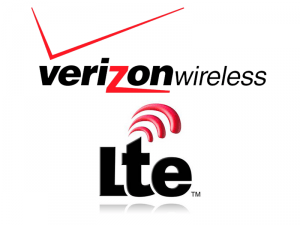New to Verizon Wireless and unhappy being constrained with a usage-capped wireless data plan? Thanks to a loophole, customers can buy their way into an unlimited access plan Verizon was supposed to discontinue last July.
Some background: Verizon Wireless spent 2011 enticing customers to upgrade to their new 4G LTE phones which use the company’s much faster mobile broadband network. One of the benefits early adopters received was a free, ongoing trial of Verizon’s mobile hotspot feature, which turns your phone into a Wi-Fi device your other devices (and friends’ phones) can share. When Verizon elected to discontinue its unlimited data plans in July, the free trial of the mobile hotspot feature went with it. In its place, Verizon pitched 4G phone owners an unlimited mobile hotspot feature add-on for $30 a month (in addition to the price of your data plan.)
Those who travel often or who want a backup Internet service in case their home or business Internet connection goes down found this a reasonable deal, especially because it carries no data limits or speed throttling, and works on both Verizon’s 3G and 4G networks.
But it turns out this little-known add-on promotion also unlocks the door to an unlimited smartphone data plan Verizon intended to stop selling last summer.
As we explained earlier, just signing up for the unlimited use mobile hotspot plan involved jumping through a few hoops. But with the help of a feature code, any Verizon representative should be able to look it up and add it to your account.
When they do, something interesting happens. Verizon cancels any existing usage-limited plan and converts it into an unlimited use plan ($29.99) they stopped selling. That leaves you with Verizon’s Mobile Hotspot feature for $30 a month and unlimited smartphone data for $29.99 a month. But here is the exciting part: you can quickly cancel the $30 mobile hotspot feature and will remain grandfathered on Verizon’s unlimited use smartphone data plan.
Slickdeals provides a helpful step-by-step guide, and it sometimes takes a few calls to reach a representative who can manage this successfully:
- Dial *611 from your Verizon phone, or 1-800-922-0204 from any phone.
- Wait for computer CSR to go through the main menu. You will need your Verizon phone # and account PIN or last 4 of SSN.
- Hit option 4.
- When it asks you what you would like to do today say “Add a feature.” You will be transferred to a live Verizon Customer Service representative.
- If you have a 3G device (which includes all iPhones): Say you would like to add the $20 2GB 3G Mobile Hotspot FEATURE to your phone. When you add this MHS feature, you will be charged $20/month in addition to the $29.99 unlimited data plan.
If you have a 4G device: Say you would like to add the $30 Unlimited 4G Mobile Hotspot FEATURE to your phone. According to http://stopthecap.com/2011/07/12/…r-account/ , they may be able to locate this feature via referencing feature code #76153. When you add this MHS feature, you will be charged $30/month in addition to the $29.99 unlimited data plan.- After one of the MHS features above are added to your account, you will now have the $29.99 unlimited data plan, which can be verified via the My Verizon app on your device or at http://www.verizonwireless.com/myverizon
- {OPTIONAL – if you don’t want the Mobile Hotspot feature} Log into My Verizon and remove the Mobile Hotspot FEATURE from your account. It is recommended to wait at least a day to remove the feature. The $29.99 unlimited data plan should remain on your account.
- If they say they can’t add that feature to your plan, or that you must bundle your data + mobile hotspot service together as a single data plan, tell them thank you, hang up, and repeat the steps above.
Updated 2:45pm EST: Our regular reader Duffin reports this loophole may be in the process of being closed. See this article from The Consumerist for further details.


 Subscribe
Subscribe






